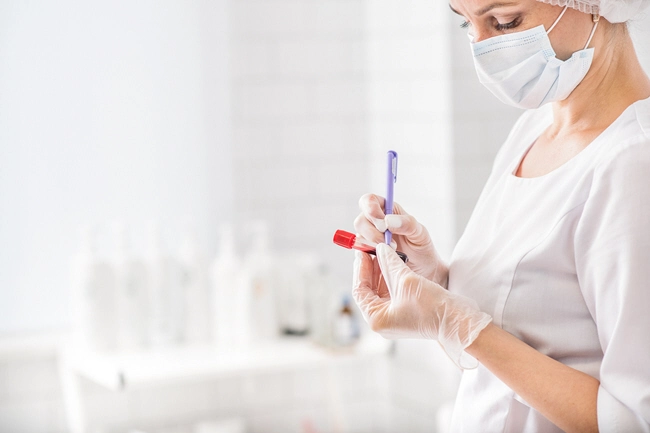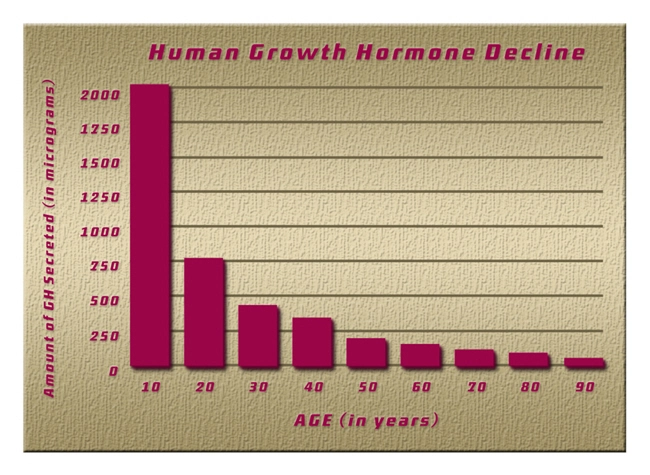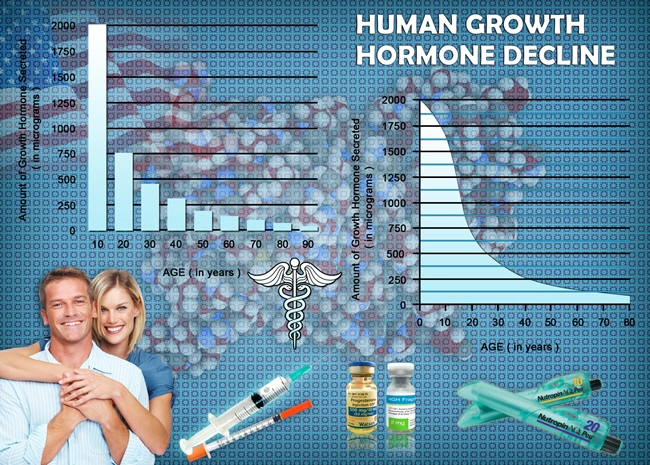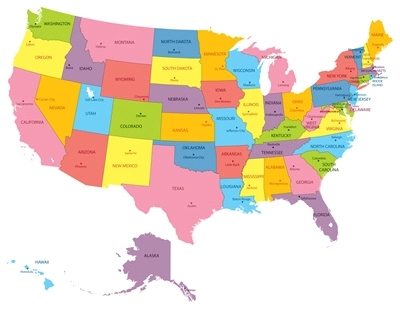
Introduction
Low libido, or a diminished sexual desire, is a common yet often unspoken issue among American men. While it can be influenced by a myriad of factors including age, health, and psychological well-being, cultural attitudes play a significant role in how men perceive and address this condition. This article delves into the cultural perceptions and stigma surrounding low libido across different ethnic groups in the United States, shedding light on how these attitudes affect men's willingness to seek help and discuss their concerns openly.
Cultural Perceptions of Low Libido
Across various cultures in the United States, low libido is often perceived through a lens of masculinity and virility. For many men, sexual performance is closely tied to their sense of self-worth and identity. In African American communities, for instance, there is a strong emphasis on masculinity, which can lead to a reluctance to admit or discuss issues related to sexual health. Similarly, among Latino men, machismo—a cultural ideal of manliness—can exacerbate the stigma associated with low libido, making it a taboo subject.
In contrast, Asian American men may face different pressures, where the cultural expectation to maintain harmony and avoid bringing shame to the family can deter open discussions about sexual health. White American men, on the other hand, may experience less overt cultural stigma but still face societal expectations to perform sexually, which can lead to internalized shame and silence.
The Stigma of Low Libido
The stigma surrounding low libido is not only a cultural phenomenon but also a significant barrier to seeking help. Many men fear being perceived as less masculine or inadequate if they admit to experiencing a decrease in sexual desire. This fear is compounded by societal messages that equate sexual prowess with manhood. As a result, men may suffer in silence, avoiding conversations with healthcare providers or partners about their concerns.
The impact of this stigma varies across ethnic groups. For example, African American and Latino men might be particularly hesitant to seek help due to the cultural emphasis on strength and virility. Asian American men might avoid discussing the issue due to fears of bringing dishonor to their families. Meanwhile, white American men might struggle with the pressure to conform to societal expectations of sexual performance, leading to feelings of isolation and inadequacy.
Addressing the Issue: Breaking the Silence
Breaking the silence around low libido requires a multifaceted approach that addresses both cultural attitudes and the stigma associated with the condition. Education and awareness campaigns can play a crucial role in normalizing conversations about sexual health and encouraging men to seek help without fear of judgment. Healthcare providers should be trained to approach the topic sensitively, understanding the cultural nuances that may affect a patient's willingness to discuss their concerns.
Support groups and online forums can also provide a safe space for men to share their experiences and learn from others who are facing similar challenges. By fostering a community of support, men can feel less isolated and more empowered to take control of their sexual health.
Conclusion
Low libido is a complex issue that is deeply intertwined with cultural perceptions and stigma. Understanding these dynamics is essential for addressing the needs of American men across different ethnic groups. By breaking the silence and fostering open, supportive conversations, we can help men navigate the challenges of low libido with confidence and dignity. As a society, it is our responsibility to challenge harmful stereotypes and create an environment where men feel comfortable seeking help and discussing their sexual health openly.
Contact Us Today For A Free Consultation
Dear Patient,
Once you have completing the above contact form, for security purposes and confirmation, please confirm your information by calling us.
Please call now: 1-800-380-5339.
Welcoming You To Our Clinic, Professor Tom Henderson.

- Revitalizing Intimacy: Strategies for Overcoming Low Libido in Long-term Relationships [Last Updated On: February 23rd, 2025] [Originally Added On: February 23rd, 2025]
- Revolutionizing the Approach to Low Libido: Proactive Medical Science at Work [Last Updated On: March 2nd, 2025] [Originally Added On: March 2nd, 2025]
- Comprehensive Analysis of Factors Influencing Male Libido: Psychological, Physiological, and Therapeutic Perspectives [Last Updated On: March 3rd, 2025] [Originally Added On: March 3rd, 2025]
- Understanding and Addressing Low Libido in Men: Causes and Solutions [Last Updated On: March 4th, 2025] [Originally Added On: March 4th, 2025]
- Exploring Hormonal Influences on Male Libido and Treatment Options [Last Updated On: March 5th, 2025] [Originally Added On: March 5th, 2025]
- Comprehensive Guide to Understanding and Managing Low Libido in Men [Last Updated On: March 6th, 2025] [Originally Added On: March 6th, 2025]
- Managing Menopausal Libido: Understanding the Impact and Effective Solutions for Women's Health [Last Updated On: March 7th, 2025] [Originally Added On: March 7th, 2025]
- Understanding Low Libido in Men: Causes, Impacts, and Effective Management Strategies [Last Updated On: March 8th, 2025] [Originally Added On: March 8th, 2025]
- Understanding Low Libido in Men: Psychological Factors and Practical Solutions [Last Updated On: March 9th, 2025] [Originally Added On: March 9th, 2025]
- Unveiling the Link: Anxiety and Its Impact on Male Libido in the American Context [Last Updated On: March 11th, 2025] [Originally Added On: March 11th, 2025]
- Unraveling the Link Between Chronic Diseases and Low Libido in American Males [Last Updated On: March 12th, 2025] [Originally Added On: March 12th, 2025]
- Unveiling the Spectrum of Medical Therapies for Low Libido in Postpartum American Males [Last Updated On: March 13th, 2025] [Originally Added On: March 13th, 2025]
- Exploring Treatments for Low Libido in American Males: Hormonal, Psychological, and Innovative Approaches [Last Updated On: March 15th, 2025] [Originally Added On: March 15th, 2025]
- Exploring Physical Causes of Low Libido in American Males: Hormones, Health, and Lifestyle [Last Updated On: March 16th, 2025] [Originally Added On: March 16th, 2025]
- Natural Supplements for Low Libido in Men: Scientific Insights and Clinical Evidence [Last Updated On: March 19th, 2025] [Originally Added On: March 19th, 2025]
- Chronic Illness Impact on Libido: Medical Insights and Management Strategies for American Males [Last Updated On: March 19th, 2025] [Originally Added On: March 19th, 2025]
- Low Libido in Men: Causes, Medical Interventions, and Lifestyle Solutions [Last Updated On: March 19th, 2025] [Originally Added On: March 19th, 2025]
- Exploring Medical Causes and Solutions for Low Libido in American Men [Last Updated On: March 19th, 2025] [Originally Added On: March 19th, 2025]
- Medication-Induced Low Libido in American Men: Causes and Countermeasures [Last Updated On: March 19th, 2025] [Originally Added On: March 19th, 2025]
- Psychological Roots of Low Libido in American Males: Stress, Depression, and Beyond [Last Updated On: March 20th, 2025] [Originally Added On: March 20th, 2025]
- Diabetes and Libido: Understanding Impacts and Managing Low Sexual Desire in American Males [Last Updated On: March 20th, 2025] [Originally Added On: March 20th, 2025]
- Medications Impacting Male Libido: Causes, Effects, and Management Strategies [Last Updated On: March 21st, 2025] [Originally Added On: March 21st, 2025]
- Exploring Low Libido in Men: Causes, Treatments, and Future Innovations [Last Updated On: March 21st, 2025] [Originally Added On: March 21st, 2025]
- Low Libido in Middle-Aged Men: Causes, Treatments, and Importance of Professional Help [Last Updated On: March 21st, 2025] [Originally Added On: March 21st, 2025]
- Low Libido in American Men: Health Risks and Importance of Medical Intervention [Last Updated On: March 21st, 2025] [Originally Added On: March 21st, 2025]
- Low Libido and Depression: Understanding the Medical Connection in American Men [Last Updated On: March 21st, 2025] [Originally Added On: March 21st, 2025]
- Hyperthyroidism's Impact on Libido in American Males: Causes, Effects, and Management [Last Updated On: March 22nd, 2025] [Originally Added On: March 22nd, 2025]
- Chronic Pain and Low Libido: Understanding the Medical Connection in American Men [Last Updated On: March 23rd, 2025] [Originally Added On: March 23rd, 2025]
- Understanding and Managing Low Libido in American Men: A Holistic Approach [Last Updated On: March 23rd, 2025] [Originally Added On: March 23rd, 2025]
- Understanding and Overcoming Low Libido in Men: A Holistic Approach [Last Updated On: March 23rd, 2025] [Originally Added On: March 23rd, 2025]
- Understanding and Treating Low Libido in American Men: A Holistic Approach [Last Updated On: March 23rd, 2025] [Originally Added On: March 23rd, 2025]
- Postpartum Libido Decline in American Males: Causes and Multifaceted Solutions [Last Updated On: March 23rd, 2025] [Originally Added On: March 23rd, 2025]
- Understanding and Supporting Low Libido in Women Over 50: A Holistic Approach [Last Updated On: March 24th, 2025] [Originally Added On: March 24th, 2025]
- Low Libido in American Men: Causes, Impacts, and Solutions [Last Updated On: March 24th, 2025] [Originally Added On: March 24th, 2025]
- Alcohol's Impact on Libido: Physiological, Psychological, and Relational Effects in American Men [Last Updated On: March 24th, 2025] [Originally Added On: March 24th, 2025]
- Effective Treatments for Low Libido in American Males: A Comprehensive Guide [Last Updated On: March 24th, 2025] [Originally Added On: March 24th, 2025]
- Exploring the Vicious Cycle of Low Libido and Weight Gain in American Males [Last Updated On: March 24th, 2025] [Originally Added On: March 24th, 2025]
- Understanding and Enhancing Low Libido in Men: A Holistic Approach [Last Updated On: March 24th, 2025] [Originally Added On: March 24th, 2025]
- Understanding and Treating Low Libido in American Males: A Holistic Approach [Last Updated On: March 24th, 2025] [Originally Added On: March 24th, 2025]
- Understanding and Supporting Low Libido in Lactating Women: A Guide for American Males [Last Updated On: March 24th, 2025] [Originally Added On: March 24th, 2025]
- Understanding Low Libido in American Males: Causes, Risks, and Treatment Options [Last Updated On: March 24th, 2025] [Originally Added On: March 24th, 2025]
- Effective Medical Treatments for Boosting Libido in American Males [Last Updated On: March 25th, 2025] [Originally Added On: March 25th, 2025]
- Sudden Low Libido in American Men: Causes, Treatments, and Prevention Strategies [Last Updated On: March 25th, 2025] [Originally Added On: March 25th, 2025]
- Revitalizing Sexual Health: Understanding and Overcoming Low Libido in American Males [Last Updated On: March 25th, 2025] [Originally Added On: March 25th, 2025]
- Low Libido Treatments for American Males: Risks and Benefits Explored [Last Updated On: March 26th, 2025] [Originally Added On: March 26th, 2025]
- Understanding and Addressing Low Libido in American Males: Causes and Solutions [Last Updated On: March 26th, 2025] [Originally Added On: March 26th, 2025]
- Understanding and Treating Low Libido in American Males: Causes and Interventions [Last Updated On: March 26th, 2025] [Originally Added On: March 26th, 2025]
- Post-Surgery Libido Recovery: Hormonal, Psychological, and Physical Strategies for American Males [Last Updated On: March 26th, 2025] [Originally Added On: March 26th, 2025]
- Understanding Low Libido in American Males: Causes, Diagnosis, and Treatment Options [Last Updated On: March 26th, 2025] [Originally Added On: March 26th, 2025]
- Low Libido in American Males Post-Pregnancy: Causes, Impacts, and Solutions [Last Updated On: March 26th, 2025] [Originally Added On: March 26th, 2025]
- Low Libido in Male Athletes: Causes, Effects, and Holistic Management Strategies [Last Updated On: March 26th, 2025] [Originally Added On: March 26th, 2025]
- Low Libido in American Women: Causes, Impacts, and Tailored Treatment Strategies [Last Updated On: March 26th, 2025] [Originally Added On: March 26th, 2025]
- Boosting Male Libido: Diet, Exercise, and Lifestyle Strategies for Sexual Health [Last Updated On: March 26th, 2025] [Originally Added On: March 26th, 2025]
- Chronic Low Libido in American Males: Medical Signs and Underlying Causes [Last Updated On: March 27th, 2025] [Originally Added On: March 27th, 2025]
- Managing Age-Related Low Libido in American Men: Hormonal, Lifestyle, and Psychological Approaches [Last Updated On: March 27th, 2025] [Originally Added On: March 27th, 2025]
- Understanding Low Libido: Causes, Impacts, and Management Strategies for American Men [Last Updated On: March 27th, 2025] [Originally Added On: March 27th, 2025]
- Understanding and Treating Low Libido in American Males: A Comprehensive Guide [Last Updated On: March 27th, 2025] [Originally Added On: March 27th, 2025]
- Understanding and Treating Low Libido in American Men: A Comprehensive Guide [Last Updated On: March 27th, 2025] [Originally Added On: March 27th, 2025]
- Medical Patterns of Low Libido in Young American Males: Causes and Interventions [Last Updated On: March 27th, 2025] [Originally Added On: March 27th, 2025]
- Low Libido in American Males: Causes, Impacts, and Treatment Options [Last Updated On: March 28th, 2025] [Originally Added On: March 28th, 2025]
- Low Libido in Male Surgical Patients: Physiological, Psychological, and Treatment Insights [Last Updated On: March 28th, 2025] [Originally Added On: March 28th, 2025]
- Effective Medical Strategies to Restore Libido in American Males [Last Updated On: March 29th, 2025] [Originally Added On: March 29th, 2025]
- Understanding and Revitalizing Low Libido in American Men: Causes and Solutions [Last Updated On: March 30th, 2025] [Originally Added On: March 30th, 2025]
- Low Libido and Unhappiness in American Men: Causes, Impacts, and Solutions [Last Updated On: March 31st, 2025] [Originally Added On: March 31st, 2025]
- Managing Low Libido in American Males Post-Chemotherapy: Medical and Lifestyle Approaches [Last Updated On: March 31st, 2025] [Originally Added On: March 31st, 2025]
- Hypertension's Impact on American Males' Libido: Causes and Management Strategies [Last Updated On: April 1st, 2025] [Originally Added On: April 1st, 2025]
- Understanding Low Libido in Women: Medical Insights for American Males [Last Updated On: April 4th, 2025] [Originally Added On: April 4th, 2025]
- Understanding and Combating Low Libido in American Men: Medical Causes and Strategies [Last Updated On: April 4th, 2025] [Originally Added On: April 4th, 2025]
- Antidepressants and Low Libido in American Males: Impacts and Management Strategies [Last Updated On: April 5th, 2025] [Originally Added On: April 5th, 2025]
- Rising Low Libido in American Males: Causes, Impacts, and Treatment Options [Last Updated On: April 5th, 2025] [Originally Added On: April 5th, 2025]
- Understanding and Treating Low Libido in American Males: Causes and Solutions [Last Updated On: April 7th, 2025] [Originally Added On: April 7th, 2025]
- Understanding and Boosting Low Libido in American Men: A Holistic Approach [Last Updated On: April 8th, 2025] [Originally Added On: April 8th, 2025]
- Libido in American Men: Impact of Medical Procedures and Management Strategies [Last Updated On: April 8th, 2025] [Originally Added On: April 8th, 2025]
- Medical Factors Impacting Low Libido in Women Under 40: A Comprehensive Overview [Last Updated On: April 8th, 2025] [Originally Added On: April 8th, 2025]
- Addressing Low Libido in American Males: Causes, Diagnostics, and Tailored Treatments [Last Updated On: April 9th, 2025] [Originally Added On: April 9th, 2025]
- Understanding Low Libido in American Males: Causes, Treatments, and Holistic Approaches [Last Updated On: April 9th, 2025] [Originally Added On: April 9th, 2025]
- Medical Causes of Persistent Low Libido in American Men: Hormones, ED, and More [Last Updated On: April 9th, 2025] [Originally Added On: April 9th, 2025]
- Medical Insights into Low Libido: Causes, Diagnosis, and Treatments for American Men [Last Updated On: April 10th, 2025] [Originally Added On: April 10th, 2025]
- Understanding and Managing Low Libido in American Males: A Holistic Approach [Last Updated On: April 10th, 2025] [Originally Added On: April 10th, 2025]
- Understanding and Treating Low Libido in American Males: Causes and Solutions [Last Updated On: April 11th, 2025] [Originally Added On: April 11th, 2025]








